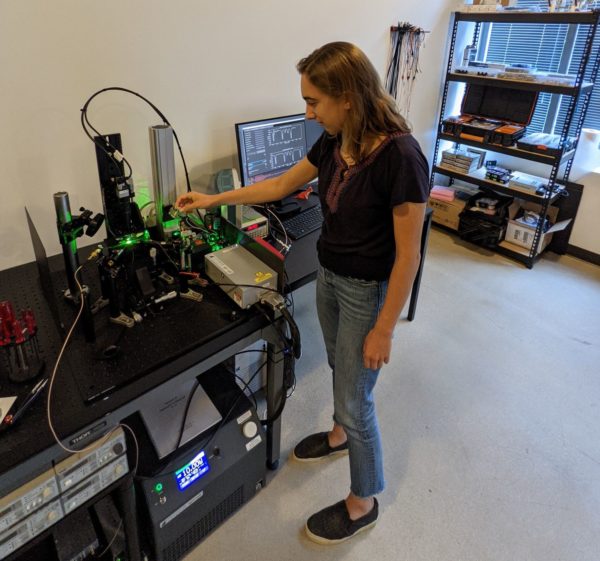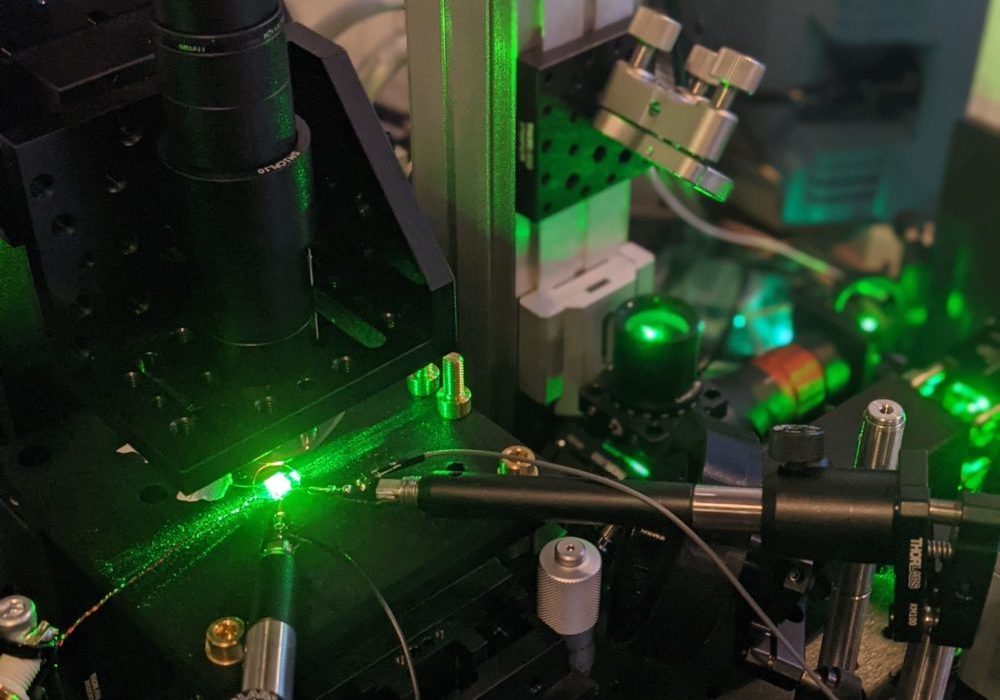Despite the triumphant success of one local company, the deep tech field of quantum has been described as one largely limited to academia. And the trouble with academics building a new industry is that they’re not always sure how to successfully commercialize the tech.
“Academics don’t necessarily make the best founders and they don’t necessarily have the time or the bandwidth to really build great companies,” Quantum Catalyzer CEO Amanda Stein told Technical.ly.
Stein seeks to assist scholars with this. Based in Maryland, Quantum Catalyzer is designed to help technical and academic founders and companies move into full-on startups. Ronald Walsworth, an entrepreneur and director of the University of Maryland’s (UMD) Quantum Technology Center, created Quantum Catalyzer in 2020 with the hope of boosting the local quantum scene.
After moving out of stealth earlier this summer, the 10-person startup has helped build out four companies so far: QDM.io, Q4ML, Xerxes Technologies and EuQlid. With some initial funding from outside investors, the company gets some revenue from contract research and development work, as well as sales of QDM.io’s quantum diamond microsopes. Companies in their sphere all work together in the Quantum Catalyzer space, develop their technology and eventually become standalone with their own employees and financing.
“If you really want to catalyze and get more companies started in the space, somebody needs to be the actor, somebody needs to be the creator who helps make it happen,” Walsworth said. “And that is what Quantum Catalyzer is trying to do”
As it takes on more companies, the startup is settling into the 4,000-square-foot space inside UMD’s Discovery District in College Park, Maryland, where it moved earlier this month (Stein clarified that the university doesn’t have a specific stake in the company).
In this new, larger space, Quantum Catalyzer hopes to hire more people to both its technical and administrative sides. It’s also hoping to make room for others as they explore and find their space in the local quantum ecosystem. Some of the company’s investment partners, Stein said, are international, and the company hopes to have more of an international presence as it grows. More locally, it also boasts a “maker space” where scientists can test their ideas outside of an academic lab before they’re ready to pursue a startup.

Stein described the company’s geographic location as a huge plus, putting it close to government partners who are interested in the technology. It’s also in reach of IonQ, the now-public darling of the Maryland quantum scene that’s paving the way for other quantum companies to grow.
“Having that anchor of a strong quantum company now allows other companies like us to say: Hey, look, they have the resources that are coming from the state and these are the supports that they’re getting, and we can follow in the footsteps,” Stein said.
With those assets in mind, Walsworth thinks the College Park area is, and will continue to be, a hub for quantum in the US. It has not only academic clout, with scientists and technologists working on new developments every day, but also a strong startup and entrepreneurship scene. Besides IonQ, Maryland is also home to quantum companies Quantum Xchange, Terbium Labs, Quaxys and Qrypt.
“I would characterize the environment in the College Park and greater College Park area in quantum as arguably the number one in the world — when you combine academia, large companies and nascent and small companies — in terms of its vitality,” Walsworth said.







